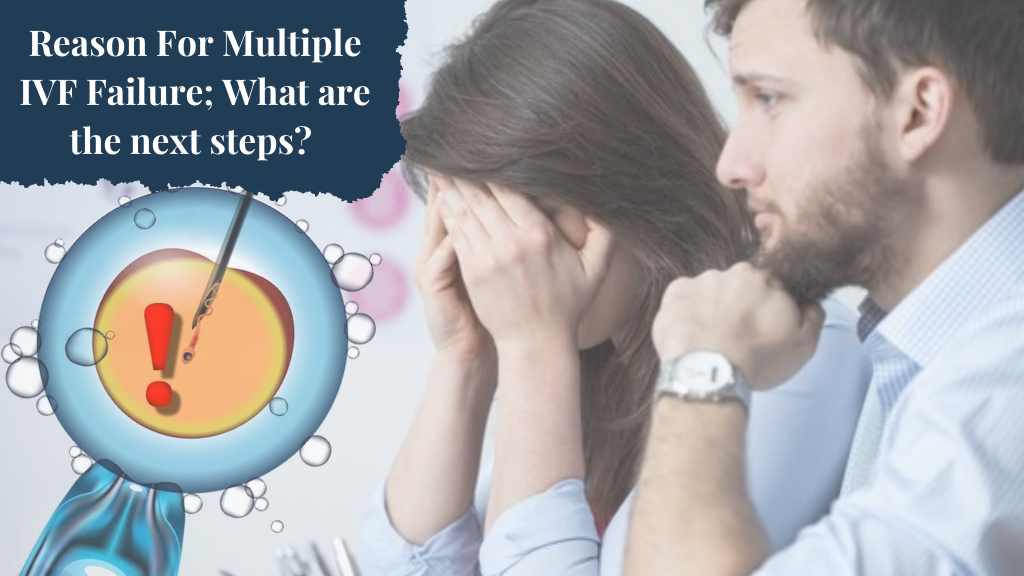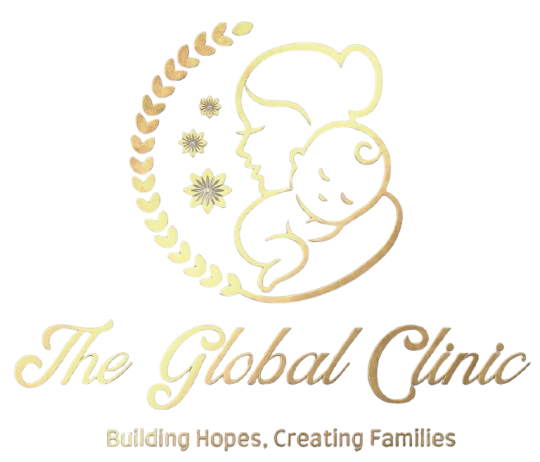IVF is known as the most effective infertility therapy and the way to overcome many of the reasons for infertility. The best fertility & IVF specialist In Greater Noida uses medicine to induce the development of numerous eggs and then collects the eggs in a controlled and exact manner. The lab fertilizes your viable eggs with sperm from your spouse (or a donor). The most viable embryos are transferred to your uterus by your doctor. The embryo(s) should adhere and grow into a healthy baby at that stage.
But what if the embryo(s) fails to attach to the uterus or if you miscarry soon afterward? Even though IVF is a highly effective technique, it does not always result in pregnancy.
IVF failure can happen numerous times, which, as you would guess, is upsetting for couples who want a child. When you’ve had repeated IVF failures, deciding what to do next might be challenging. Is your hope of bringing a child to term dashed? And what are the causes of your several IVF failures?
Here, we’ll look at some of the reasons IVF fails, as well as what physicians recommend you do next.
MULTIPLE IVF FAILURES DEFINED
There are three or more unsuccessful IVF efforts employing excellent grade embryos in multiple IVF failures. The word refers to both people who are unable to conceive and those who have a miscarriage early in their pregnancy.
IVF FAILURE REASONS
There are a variety of causes for IVF failure, and not all of them rule out the prospect of future success, nor are they all blamed on the mother. Getting to the bottom of why IVF failed numerous times for you.
THE EMBRYO QUALITY
The embryos just cease growing, which is one of the most prevalent causes of IVF failure. Embryos that do not implant after transfer are frequently owing to a genetic abnormality that was not detected during preimplantation genetic testing.
Because the embryo was not healthy enough to develop, it failed to implant.
THE EGGS’ AGE
The quality of the embryo is affected by the age of the egg. This can lead to recurring IVF failure in women over the age of 35. Women are born with all of their eggs, and as they get older, the quality of their eggs begins to deteriorate. The closer you go to menopause, the harder it is to get viable eggs. Women under the age of 35 have an implantation rate of roughly 45 percent, whereas women over 40 have an implantation rate of around 15 percent.
AUTOIMMUNE CONDITIONS
Autoimmune illnesses impact around ten percent of the population, with women accounting for 80 percent of those diagnosed.
An autoimmune illness develops when your immune system targets healthy tissue, resulting in cell damage and inflammation. Hashimoto’s thyroiditis, Addison’s disease, celiac disease, type 1 diabetes, and Lupus are some of the more frequent immunological diseases.
Antibodies found in women with specific autoimmune illnesses impede embryo implantation, resulting in numerous IVF failures. Some people are unaware they have an autoimmune condition until they start seeking answers to their infertility.
CHROMOSOMAL CONTROVERSIES
IVF failure is caused by chromosomal defects in embryos, just as it is in spontaneous conception. The number of chromosomal abnormalities in a woman’s eggs starts to rise in her mid-30s. By the time she reaches her mid-40s, she has a staggering 75% of these anomalies. As a man gets older, his sperm becomes more chromosomally aberrant.
Before implanting embryos in the uterus, preimplantation genetic screening or testing reveals chromosomal abnormalities. Some couples refuse to have their embryos tested, which might result in numerous IVF failures owing to genetic problems (s).
LIFESTYLE
The same lifestyle variables that lead to a loss in spontaneous conception might equally harm IVF patients. Smoking, drinking, eating poorly or being considerably under- or overweight all influence IVF success. Smoking women require twice as many IVF cycles on average to conceive, and they have a higher risk of miscarriage.
NEXT STEPS FOR YOU
Many couples require several cycles of IVF before achieving success. IVF failures have a significant emotional and physical impact on the individuals involved. After each failure, your doctor will counsel you and suggest tests before proceeding. You do have alternatives at that time, depending on the findings of the tests.
For those who have had several IVF failures, doctors recommend preimplantation genetic testing. Screening your embryos for chromosomal abnormalities before implantation increases your chances of success with IVF.
If your doctor finds that the age or quality of your eggs is the cause of your IVF failure, IVF using donor eggs is another option. Donor eggs are screened for viability and retrieved from healthy young women in a lab. A member of your family could be willing to give her eggs. For people who have had many implantation failures, gestational surrogacy is a possible option. The intended mother’s eggs are fertilized with the father’s sperm in the lab. Your doctor implants the viable embryo(s) into a gestational surrogate’s uterus.
Failure of IVF does not rule out the possibility of becoming a parent. You do have alternatives. Contact Dr. Ramya Mishra Shukla, an IVF doctor in Greater Noida, for more information on the strategies you CAN take after IVF failure.




